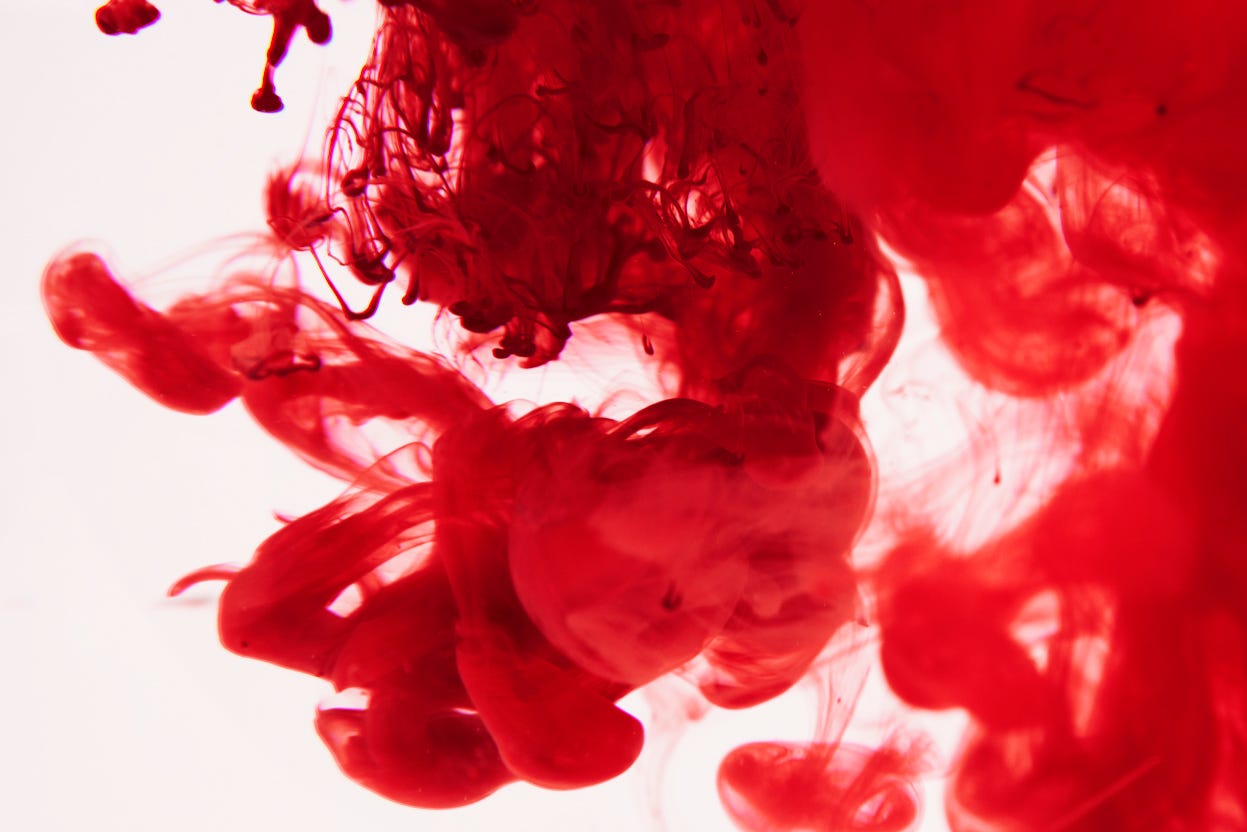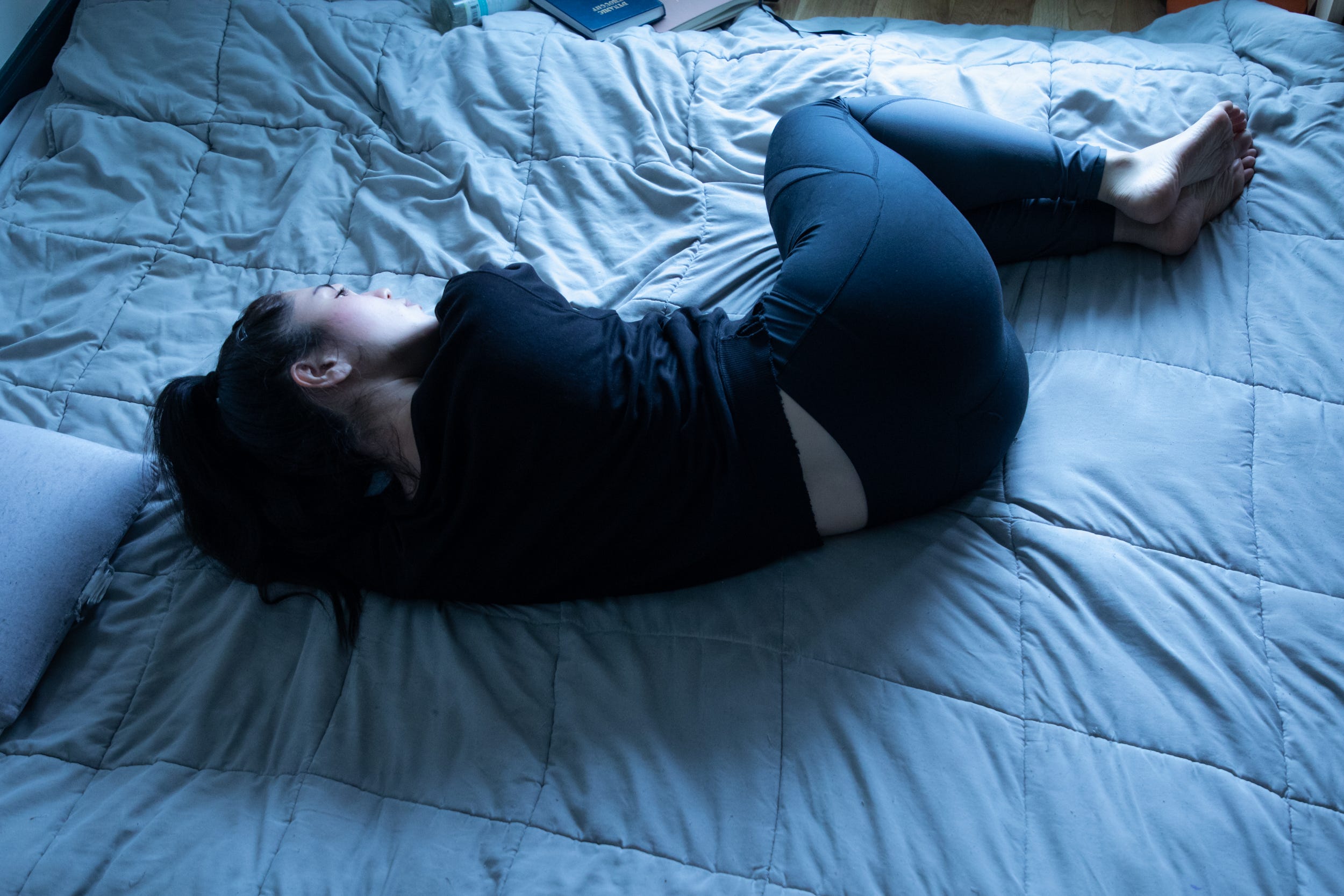
- People are reporting changes to their periods after COVID-19 vaccination.
- Research on the topic is slim, but the immune response to the shot and stress likely play a role.
- Stress and habit changes can affect your period too, even if you're on hormonal birth control.
- Visit Insider's homepage for more stories.
Five hours after Sam got their second dose of Pfizer's COVID-19 vaccine, they got their period – about five days early in a cycle that's typically late.
While they could handle anticipated post-vax side effects like fatigue and achiness, the unexpected bleeding shook Sam, who is trans and uses they/them pronouns.
"My period already freaks me out, so the fact that this was a thing that was going to happen to me that I didn't know about makes me very upset," said Sam, a 24-year-old in Boston who asked to use a pseudonym to protect their privacy.
Sam's period was also heavier than ever and accompanied by tanking emotions. "I just remember sobbing and thinking, 'something's wrong with me,'" they said.
At first, Sam didn't put their out-of-character cycle together with the vaccine, but when they began to type "early period" into Google, the search engine auto-completed to "early period after vaccine." Sam went on to read some of the suggested articles and talks, and realized they weren't alone.
"I'm still very happy I got the vaccine," they said, "but I would have preferred to know about this [beforehand]."
The COVID-19 vaccines affecting genders differently: women tend to experience more severe side effects and seem to have a higher risk of rare blood clots linked to the vaccines by AstraZeneca and Johnson & Johnson's.
However, experts say there is not yet enough evidence to say that the vaccine itself causes a change in menstruation - it could be linked to the body's stress response to shots or the pandemic, or just be a coincidence.
People took to Twitter to share their period and vaccine stories
Many people have turned to social media to see if anyone else is experiencing unusual menstrual changes after getting their vaccine.
-Nneka M. Okona 🇳🇬 (@afrosypaella) April 14, 2021
"How bizarre, I had my jab 3 wks ago and have been experiencing what has felt like menstruation but I menopaused 8 yrs ago! Confused," one Twitter user wrote in response.
"Worst cramps I ever had, lightweight feeling like I was in labor with back pain!," another Twitter user wrote. "Hoping it was just that one time after my second shot of Pfizer."
Even people on hormonal birth control, which regulates your menstrual cycle, have reported changes.
Researchers are starting to study whether there's a link, but some say it might be a red herring
Doctors don't know exactly why because research on vaccines and menstruation is slim, and on the COVID-19 vaccine and menstruation is none. Spotting or an early period is unlikely to be picked up in clinical trials or reported to the CDC as a side effect, especially if people don't associate their menstrual changes with the shot.
"The lack of data regarding menstrual cycles and vaccines is infuriating," OB-GYN Dr. Jen Gunter wrote. "I am not concerned about downstream effects regarding infertility or recurrent miscarriages as this has been well-studied for a variety of vaccines. But knowing about menstrual irregularity is as important as knowing about fever."
That's why now, two female researchers who experienced menstrual changes after the vaccine themselves are looking into if and how the COVID-19 vaccines affect people's periods.
"Our survey cannot tell us anything about prevalence or the number of people who are affected," co-study author Katharine Lee, a postdoctoral research scholar at Washington University School of Medicine, told the Chicago Tribune. "What we can do is look for associations and trends that help us direct whatever the next study would be."
Stress may be at play
There are some theories that could help explain what's going on.
For one, a jab stresses the body, Dr. Kelly Culwell, an OB-GYN in San Diego, told Insider.
"It needs to stress the body in order for the antibodies to be produced, and menstrual cycles are highly dependent on stress," she said. "This may be something that happens with other vaccines as well," she added, it's just that we haven't had a mass vaccination situation and social media to raise the question as vividly as right now.
Gunter also suspects the reported period changes are related to how the body's immune response to the vaccine affects the endometrium, or the lining of the uterus that thickens during menstruation.

It's also possible broader factors are at play, like the immense stress of living through a pandemic and a social justice reckoning, Dr. Mary Rosser, Director of the Integrated Women's Health Program at Columbia University's Department of Obstetrics and Gynecology, told Insider.
"Watching everything for the last year and watching patients come in day after day, I have to say the stress of the entire year has probably been more stress than anyone who's alive has ever been through," she said.
Stress can affect your period because it disrupts how your brain controls the hormones that keep it regular. Even people on hormonal birth control can find their cycles altered by stress, Dr. Jessica Shepherd, an OB-GYN in Dallas, previously told Insider.
"There's this kind of tug of war between your body's normal response and what the contraceptive is providing in the form of hormones," Shepherd said. "So when you go through a stressful timeframe, that can alter your normal functioning hormones and it can cause a shift in how your body responds to the contraception that you're on."
Throw in altered sleeping, eating, and exercise patterns, as well as significant weight loss or gain, and it's not surprising people's flows are out of whack. "I don't really think this is directly the COVID vaccine as much as it is everything else around it," Rosser said.
An occasional irregular period is not concerning
She said it's not concerning for a cycle or two to be irregular each year, but if yours doesn't resume to normal after another period or two, see a doctor. Another health condition, like PCOS, hyper- or hypothyroidism, uterine polyps or fibroids, could be to blame.
"Even outside of COVID, many times when I see women, whatever their condition or disease state is, they think that they might be the only one who's going through that," Shepherd said. "So it's still important to convey that message that they're not alone in their journey."
